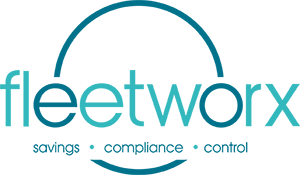18 Apr Company Car Fleet Analysis: 5 Numbers You Must Study Closely
A couple of weeks ago I wrote about the importance of knowing your numbers. Well, it seems this topic has touched a nerve. We had lots of feedback on the significance of good data flow and its interpretation, but we also had a lot of questions about what numbers matter. It is great to have systems that draw your numbers together and produce insight, but which numbers should be your focus, and which numbers matter for overseers of a company car fleet supply chain.
These are the top 5 numbers that matter when managing your company car fleet supply chain.
a. Unplanned, in-life spend.
If it remains unchecked, in-life spend can drastically increase the overall cost of a company car benefit program. A company car programme can expect to incur 5% of the annual driver cost in unplanned in-life costs. Consequently a company running 1500 cars at an average driver cost of £9,000 pa can expect to be faced with an additional £675,000 per year. Unplanned spend can come from accident costs, repair and maintenance costs and end-of-contract charges and can add significantly to the total cost of ownership. The supply chain should have systems to monitor these areas of spend and offer advice on how to reduce their impact. Experience shows that drivers who take the risk on damage liability show a reduction of low-speed impact incidents of up to 70%, subsequently reducing the amount of insurance and repair costs
b. Supplier Margins
If you are employing an outsourced fleet provider you may be surprised to learn that about only 20% of their revenue is from the management fee they charge you. The rest consists of opaque margins and rebates. These revenues are broad and varied and consist of, among others, interest margin, contract adjustment margin, maintenance network rebates, repair network rebates. If your contract has been written with transparency in mind, these revenues will be visible and accountable. As the client you have every right to challenge and negotiate the value of these margins and decide who takes the benefit.
c. Manufacturer Discounts
Suppliers who take a partnership approach to your relationship should be willing to share information about manufacturer discounts. Manufacturer discounts can be substantial and they should be made transparent to all stakeholders. Suppliers should be asked how the discounts are awarded and how they are distributed between themselves and their clients.
d. Maintenance Spend
Understanding this number is vital for setting and managing accurate budgets. Suppliers should have the ability to report on different spend categories, highlighting overspends and re-allocating any savings.
e. End-of-contract charges
End of contract charges is a spend category which will often go unobserved. Charges are frequently applied without being challenged and can lead to unplanned costs in tens of thousands of pounds. End-of-contract charges are made up of excess mileage claims, damage costs and late-hire charges. Close interrogation of all invoices related to these charges should be a standard and your supplier should have systems in place to deal with and report on these costs.
We know that getting to grips with these numbers can be very challenging. Mostly because extracting these numbers from an external fleet supply chain is very difficult and cumbersome, just one of the unintended consequences of outsourcing a company car fleet.
CentraxTM , our management information system, has been developed to deal with this frustration. We use CentraxTM to reach into the supply chain and draw out the data for our interpretation. We take data analytics very seriously at Fleetworx, and we use tecnology and expertise so that we not only know your numbers, we know the right numbers.
A copy of our whitepaper “The Unintended Consequences of Outsourcing Company Car Fleets: And How to Avoid Them” is available here. To understand more about CentraxTM and how it can help your company car fleet contact me on grees@fleetworx.com.
Back to Blogs Back to Case Studies List

Sorry, the comment form is closed at this time.